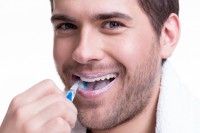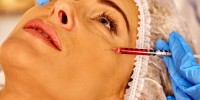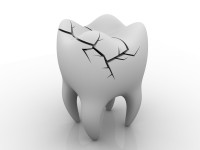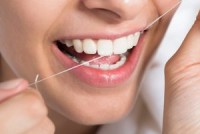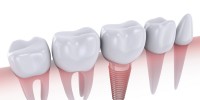 If you’re missing a tooth, or multiple teeth, it’s certainly embarrassing. If you’ve got loose dentures, that’s equally difficult. You just don’t feel like yourself. You’re hiding your smile, eating alone. Life loses its fun when you don’t feel right. That’s where dental implants can help.
If you’re missing a tooth, or multiple teeth, it’s certainly embarrassing. If you’ve got loose dentures, that’s equally difficult. You just don’t feel like yourself. You’re hiding your smile, eating alone. Life loses its fun when you don’t feel right. That’s where dental implants can help.
My patients, over the years, have loved their dental implants. I can’t tell you how often I’ve heard it. “It looks so natural” or “It looks just exactly like my other teeth.”
And for people with loose dentures, it’s been equally exciting. “I don’t have to worry about eating anymore!” or “Should have done this YEARS ago!”
That’s the thing. Dental implants are so well-made today, and so natural looking, they do their job very well. They function just like real teeth. And with dentures, implants make all the difference. No more strange slippage when you eat or speak. You quite simply don’t have to worry any more about your teeth!
I love giving my patients this wonderful feeling. It truly moves me to hear their reactions. It’s like I’ve given them back their smiles, their freedom – their enjoyment in life. That’s quite rewarding for a dentist. It makes my work very worthwhile.
What exactly are dental implants?
Dental implants are the next best thing to having your own teeth. A dental implant is an artificial tooth designed to look and feel natural and allow you to have the beautiful smile you deserve. If you’ve experienced tooth loss as a result of an accident, tooth decay, root canal failure, or gum disease, dental implants may be your answer.
Dental implants can be used to replace a single tooth, several teeth, or all of the teeth. If you’ve worn dentures, a dental implant can make those dentures more secure – so they become like your natural teeth.
Dental implants have become a favored option for tooth replacement with success rates close to 98%, for healthy people. That’s excellent news for you.
The benefits of dental implants
There are multiple advantages to having dental implants, including:
- Improved appearance. Your dental implant will be custom-created to look just like your natural teeth. And because the tooth is designed to fuse with your jaw bone, they function just like your own teeth.
- Improved comfort. Because implants are a part of your jawbone, they eliminate the discomfort of dentures.
- Improved speech. If your dentures have fitted poorly, they can slip while you’re talking – so you’re slurring words, or you may mumble. With a dental implant, you can talk without worry that the dentures might slip.
- Easier eating. While dentures can make chewing difficult, implants function like your natural teeth. You can eat your favorite foods with confidence.
- Improved self-esteem. With dental implants, you can have your smile again. You’ll feel better about yourself, and it will show.
- Improved oral health. Nearby teeth are not altered to support the implant, so more of your own teeth are left intact. That improves your long-term oral health.
- Durability. Implants are very durable and will last for many years. They can even last a lifetime.
- Convenience. With dental implants, there’s no need to remove dentures. The embarrassment is gone, as well as the need for messy adhesives.
What’s involved in getting a dental implant?
It’s a straightforward process, but does take a few appointments.
Let’s say you have a damaged or decayed tooth. It needs to be removed, which means both the visible part of the tooth, called the crown, and the root are lost.
The dental implant, typically made of titanium, serves as the replacement for the tooth root – the very foundation of a natural tooth. Because it is placed in the jawbone and fuses with your natural bone, the dental implant forms a sturdy base for your replacement teeth.
Implants can be used to replace an individual tooth. Implants can also support a bridge or denture to keep multiple teeth secure.
Indeed, dental implants are the closest you can get to healthy, natural teeth. They will allow you to confidently eat, smile, laugh, talk, play and enjoy all of your regular activities of everyday life without thinking about your teeth.
Dentures supported by implants give you solid-feeling teeth. No more slippage! It’s like you have your natural teeth back again!
Are dental implants right for me?
If you’re missing one or more teeth, probably so. Nearly anyone in good health whose jaw has finished growing is a candidate. If you were born without a tooth — or lost one or more teeth – dental implants can help.
Success rates of dental implants vary, depending on where in the jaw the implants are placed. Generally, however, dental implants have a success rate of up to 98%. With proper care, implants can last a lifetime.
Let’s talk about dental implants for you.
Read more:
http://www.aaid-implant.org/about-dental-implants/what-are-the-benefits-of-dental-implants-over-other-treatments/
http://www.webmd.com/oral-health/guide/dental-implants#1-2
 Over your lifetime, you will only get two sets of teeth. You must take good care of teeth to keep them healthy.
Over your lifetime, you will only get two sets of teeth. You must take good care of teeth to keep them healthy.




